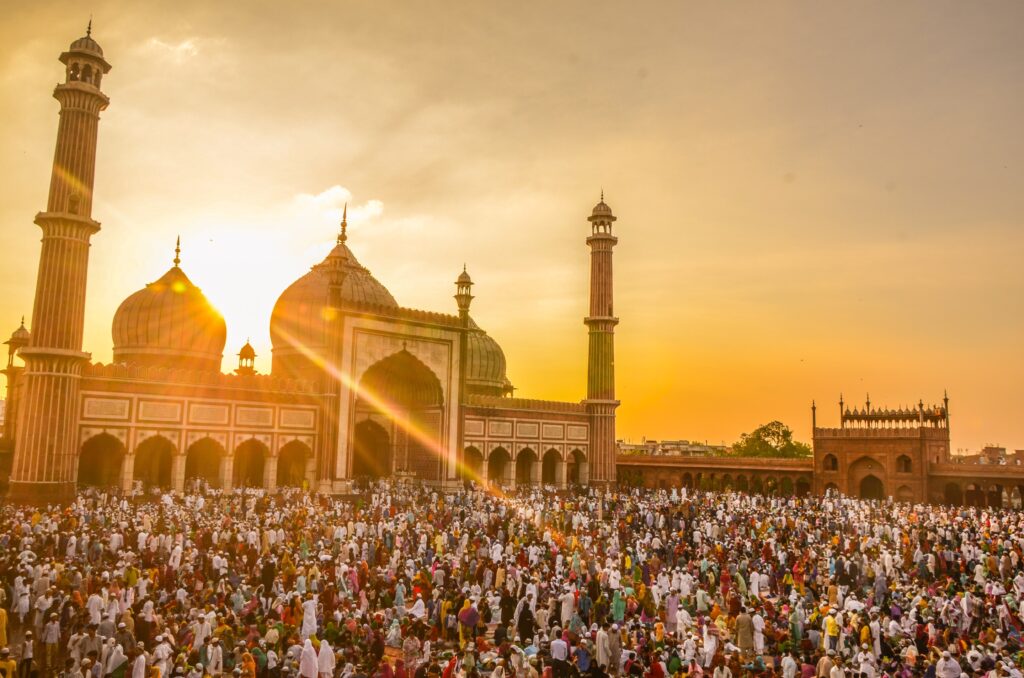Written by Ifza Shakoor for the Race Equality Network
As we mark Islamophobia Awareness Month this November, it’s time to reflect on the concerning issue of Islamophobia that continues to affect individuals and communities worldwide.
Islamophobia refers to the unfounded fear or prejudice towards Islam and those who practise it. This form of discrimination can range from direct acts of hatred to more subtle, ingrained prejudices that can be just as damaging.
Recognising Islamophobia – what does this term mean and what does it look like?
Islamophobia often shows itself in everyday situations. For example, there might be a moment of tension on a bus when someone spots a person with a beard, dressed in traditional Muslim attire, and perhaps looks twice or holds their bag a little closer.
A Muslim woman wearing a headscarf and called a “terrorist.”
It’s these snap judgements, rooted in misunderstanding, that contribute to the broader problem of Islamophobia.
It is not uncommon for Muslims to be victims of unprovoked attacks
The Real-Life Consequences
The effects of Islamophobia are profound and far-reaching:
- Mental Wellbeing: Discrimination can lead to stress and anxiety, impacting mental health significantly.
- Community Isolation: Muslims may feel side-lined in society, affecting their ability to engage and connect with others.
- Workplace Challenges: Muslims often face barriers in finding employment, which can lead to financial instability.
- Cultural Suppression: There can be pressure to downplay or hide one’s cultural identity to avoid discrimination.
A Message of Equality from Islam
Islam, at its core, is a religion that champions equality and fairness. This is best exemplified by a statement the Prophet Muhammad’s last sermon:
“An Arab has no superiority over a non-Arab, nor does a non-Arab have any superiority over an Arab; also, a white has no superiority over black, nor does a black have any superiority over white; none have superiority over another except by piety and good action.”
This poignant message is directly at odds with the concept of Islamophobia and serves as a reminder of Islam’s true teachings on equality.
Reflecting on the Facts
Muslims are statistically more likely to be unemployed than their non-Muslim counterparts—a sobering fact that highlights the societal impact of Islamophobia.
As Kofi Annan wisely said,
“Ignorance and prejudice are the handmaidens of propaganda. Our mission, therefore, is to confront ignorance with knowledge, bigotry with tolerance, and isolation with the outstretched hand of generosity.” Furthermore, Nelson Mandela’s words resonate deeply: “No one is born hating another person because of the colour of his skin, or his background, or his religion.”
Sobering Statistics
In 2022, MEND, working with Muslim Census, published a report unveiling the extent of attacks on UK mosques and Islamic institutions. Key findings include:
- A rise in attacks post-March 2019, notably after the Christchurch attack.
- A 15% increase in Islamophobic incidents at mosques during the pandemic.
- Muslims being the target of 45% of all religious hate crimes from March 2020 to 2021.
- 42% of mosques experiencing attacks in the past three years, with 35% facing attacks yearly.
For an in-depth look at these issues, visit MEND’s (Muslim engagement & development) Mosque Security Report. The full report offers valuable insights and reinforces the need for heightened awareness and protective measures
The statistics paint a sobering picture of the reality of Islamophobia and its impact on the UK’s Muslim population. They underscore the importance of awareness, education, and proactive steps to combat hate crimes and discrimination.
Simple Steps Towards Change
Everyone can all play a part in fighting Islamophobia:
- Learn More: Take the time to learn about Islam through books, documentaries, and conversations.
- Speak Out: If you hear an Islamophobic comment, challenge it. Staying silent can be seen as agreement. (Race quality Matters #ItsNotMicro will be really helpful for this
- Make Connections: Get to know Muslims in your community and workplace and listen to their stories.
- Self-Reflection: Be honest about your own biases and work on changing them.
Islamophobia Awareness Month is a prompt for us to take real action.
It’s an opportunity to embrace the values of understanding and it’s about creating a society where, in Mandela’s words, love is more natural to the heart than its opposite.
By acknowledging and celebrating our differences, we can begin to dismantle the foundations of Islamophobia and build a community that truly values diversity.
Further Resources and Learning
If you’re inspired to learn more and take an active role in combatting Islamophobia, a wealth of resources is available at your fingertips. The Islamophobia Awareness organisation provides a variety of free resources that can guide you through the complexities of Islamophobia and how to counteract it.
To access these materials, please visit Islamophobia Awareness Resources. Here, you’ll find informative materials, guides, and educational content that can empower you to become an advocate for change, not just during Islamophobia Awareness Month, but all year round.
Taking this step towards education and understanding is crucial in our journey to build an inclusive society where everyone is respected and valued, regardless of their faith or background.
If you feel moved to make a difference and join the fight against race discrimination ad inequality, the Race Equality Network welcomes you.
By contributing in ways that resonate with you, whether through active engagement or by spreading awareness, you become a vital part of the movement towards a more inclusive and equal society.
If you would like to carry on the conversation
We would value your thoughts. Please do follow us and join the conversation on LinkedIn
If you want to see change and race equality in the workplace, join the Race Equality Matters’ movement if you are not registered already.
Image Pexels – Photo by Rayn L: https://www.pexels.com/photo/photo-of-people-in-front-of-mosque-during-golden-hour-3163677/

